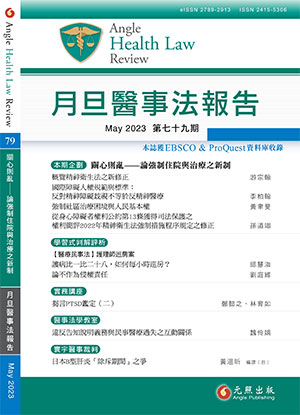國際障礙人權規範與標準:反對精神障礙歧視不等於反對精神醫療【本期企劃】 試閱
International Standards for Disability Rights: Anti-Mental Disability Discrimination, Not Anti-Psychiatry
身心障礙者權利公約強調障礙並非醫學問題,而是社會結構與法律制度阻礙了多元身心狀況的人平等社會參與的資格與機會。障礙者權利委員會針對許多國家的國家報告作出之結論性意見,經常提醒並建議各國政府盡速終止替代決策之實踐,以及消除未經本人知情同意、非自願之精神治療。委員會於2014、2015年通過第1號一般性意見及「關於第14條準則」,強調障礙者在法律之前獲得平等肯認的重要性,及其人身自由與安全與其他人權之間的連結。惟包括臺灣在內,迄今仍無國家完全遵守這些規定。在此脈絡中,本文先介紹國際障礙人權規範,接著討論國家實踐及其對相應規定之理解,最後試圖從「逐步實現健康權」的角度提出暫時但絕非完美的詮釋路徑,以求拋磚引玉。
The Convention on the Rights of Persons with Disabilities (CRPD) emphasises that disabilities are not a medical problem but the barriers created by social structures and legal institutions that prevent people with diverse mental and physical conditions from opportunities to participate equally in society. The Committee on the Rights of Persons with Disabilities, through its concluding observations on the state reports of many countries, has frequently reminded and recommended that governments urgently end substitute decision-making practices and eliminate involuntary psychiatric treatment without informed consent. The Committee adopted its General Comment No. 1 in 2014 and the Guidelines on Article 14 of the CRPD in 2015, accentuating the significance of equal recognition before the law for persons with disabilities and the connection of personal liberty, security, and other human rights. However, all countries, including Taiwan, still have not fully complied with these norms. This article first introduces international disability rights law, inconsistent state practices, and their understanding of relevant rules. Finally, I propose a provisional – yet imperfect – interpretative approach from the perspective of ‘progressively realising the right to health’ to foreground a larger public and academic discussion.
021-035







